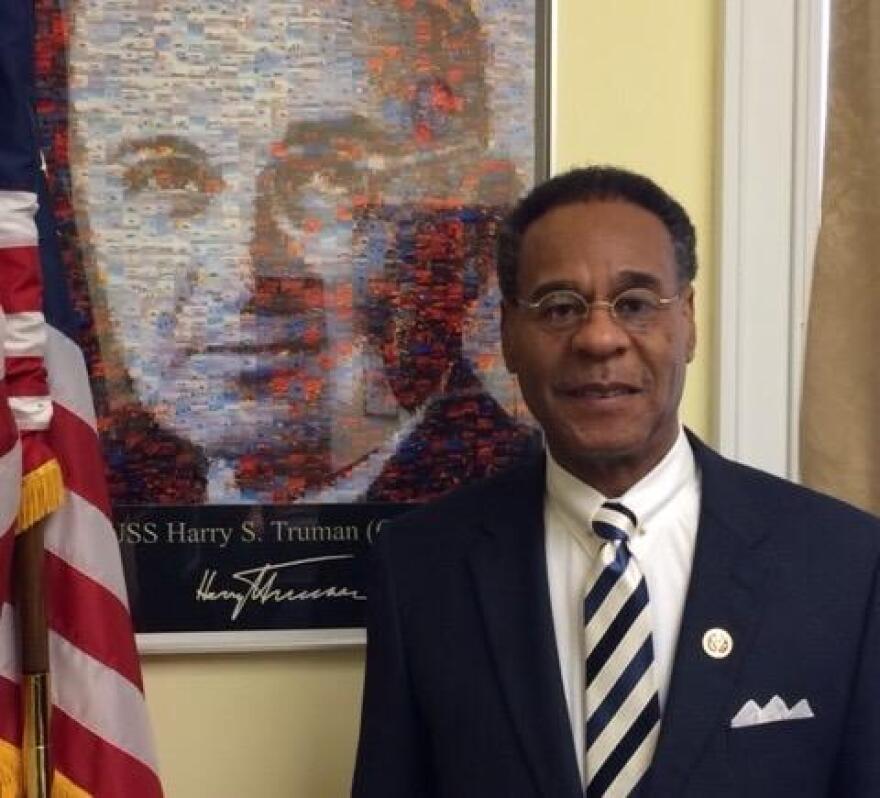This week on Politically Speaking, St. Louis Public Radio’s political podcast, reporters Jason Rosenbaum and Jo Mannies use the magic of radio to interview U.S. Rep. Emanuel Cleaver from his Washington, D.C. office.
The Democratic congressman represents portions of Kansas City as well as several rural counties in mid-Missouri. For many years, Cleaver was a pastor at the St. James United Methodist Church in Kansas City which probably explains why he’s one of Missouri politics’ most celebrated orators.
After serving for more than a decade on the Kansas City City Council, Cleaver was elected as the city’s first African-American mayor in 1991. He presided over a number of major projects in the city, including the South Midtown Roadway.
After a stint as a radio host for KCUR, Cleaver jumped back into the political fray in 2004 when he ran for – and won – an open congressional seat. Since that time, he’s won re-election in his heavily Democratic district somewhat easily – although his vote totals declined in the GOP wave elections of 2010 and 2014. Among other things, Cleaver was the chairman of the Congressional Black Caucus from 2011 to 2013.
In March, Cleaver proposed legislation aimed at barring cities from engaging in revenue-based policing. It would make it a civil rights violation to enforce criminal or traffic laws solely to raise revenue. This bill came about after Ferguson received some scrutiny from the U.S. Department of Justice for running a police department that was overly concerned with accumulating fine revenue.
During the show, Cleaver said:
- He’s enjoyed representing the rural portion of his district, which was previously incorporated into former U.S. Ike Skelton’s 4th Congressional District seat. Cleaver grew up in rural Texas and spent time on farms picking cotton.
- He’s tried to maintain a civil demeanor during his tenure in Congress, which might be why he called sequestration legislation a “sugar-coated Satan sandwich” instead of something more profane.
- Long before Michael Brown’s death, Cleaver worked to build up the Ferguson branch of the United Methodist Church – which was rebranded as the Wellspring Church. He said he was greatly disturbed by the equipment that was used during protests over Brown’s death.
- There’s been bipartisan support of his legislation taking aim at “revenue-based” policing. While the chances of the bill getting out of the GOP-controlled Congress are somewhat up in the air, he said he’s received good vibes from Libertarian-minded lawmakers such as U.S. Sen. Rand Paul, R-Kentucky.
- He’ll likely be “involved heavily” in former Secretary of State Hillary Clinton’s presidential bid. Cleaver was one of Clinton’s most staunch supporters from Missouri during the 2008 election cycle, and added that he’s talked with Clinton’s campaign team about playing a significant role her latest presidential bid.
Follow Jason Rosenbaum on Twitter: @jrosenbaum
Follow Jo Mannies on Twitter: @jmannies
Follow Emanuel Cleaver on Twitter: @repcleaver
Music: “Weird Fishes/Arpeggi” by Radiohead


